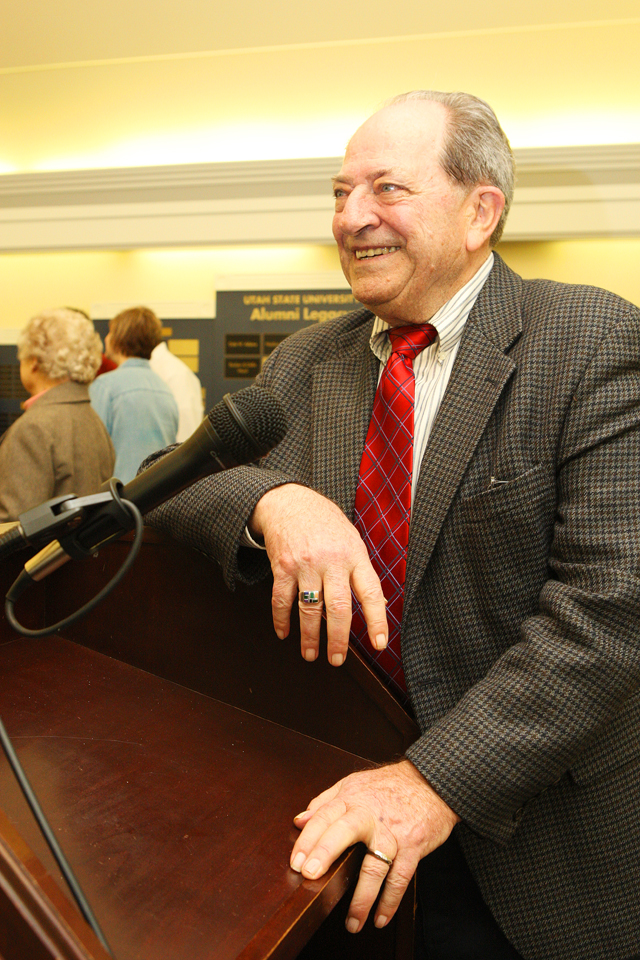USU alum talks of the future of news
As newspapers face difficulties and fail, the future of the news is going to be HD Radio, said Donald Quayle, Utah State alumnus and first president of National Public Radio (NPR).
Quayle spoke as part of a celebration for the one-year anniversary for Fusion HD, the student-run radio station on campus.
“The morning paper and a cup of coffee is going to change. What’s going to take its place? I think it’s HD Radio,” Quayle said.
Quayle helped to start the first student-run radio station, KUSU, at Utah State in April 1960. It started as educational programming and was originally broadcast through transmitters that were placed in dormitories and other buildings around campus.
“It ended because we had a very creative engineer. He knew how to connect to telephone lines. It was highly illegal,” Quayle said.
The radio station was started up again last year, he said.
After graduating from Utah State with a degree in speech, Quayle said he did a tour with the Air Force in Korea. Upon returning, he started working on his master’s degree in theater. He went on to Ohio State University to earn a Ph.D. in broadcast and theater performance.
After finishing his Ph.D., Quayle became influential in the educational broadcasting arena by pushing for increased networking among the different radio stations.
“I was convinced that non-commercial, educational broadcast would provide productive use of time,” Quayle said. “The only way to do that is to all connect and combine resources.”
Quayle helped to connect educational stations in Washington, D.C., Philadelphia, New York, Boston, New Hampshire, Vermont and Maine.
Because of his advocacy for the interconnections, Quayle was selected to head NPR when it began in 1971. He helped start “All Things Considered,” with a budget of $1.8 million, 43 staff members and 73 member stations. After 38 years, the same program has an annual budget of $155 million, 860 member stations and 130 hours of programming per week. “All Things Considered” is just another example of how much NPR has grown in the short time since the station began, he said.
At the speech, Quayle was also awarded a merit citation, to which he said, “I just want to say I’m also a good dancer.”
–seth.bracken@aggiemail.usu.edu

